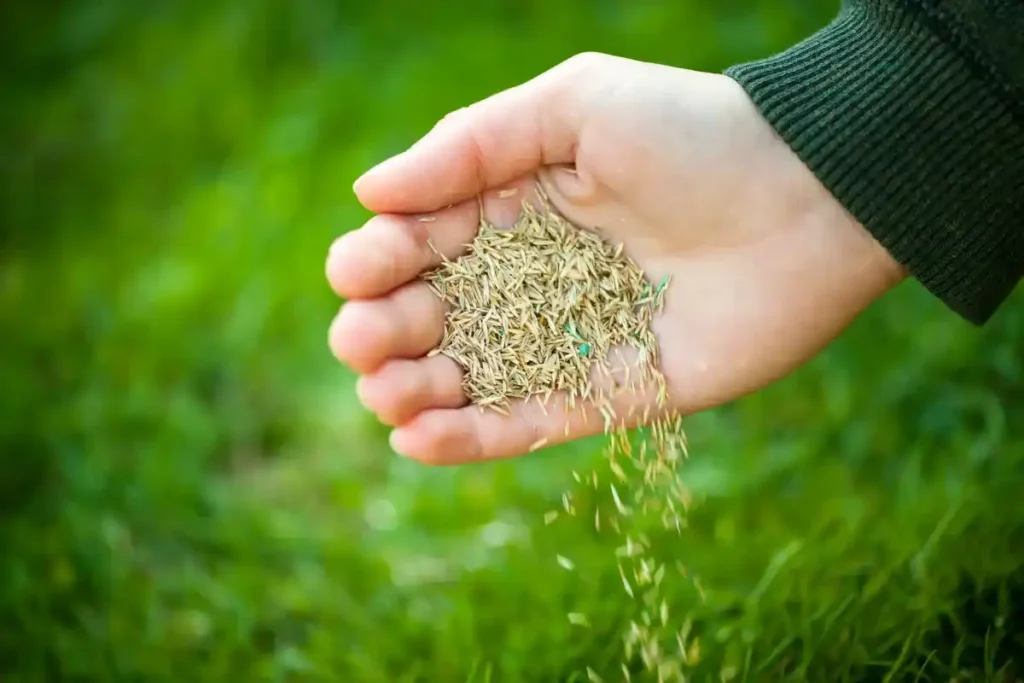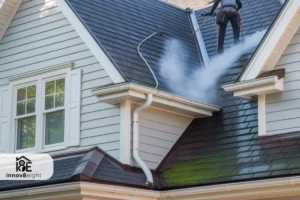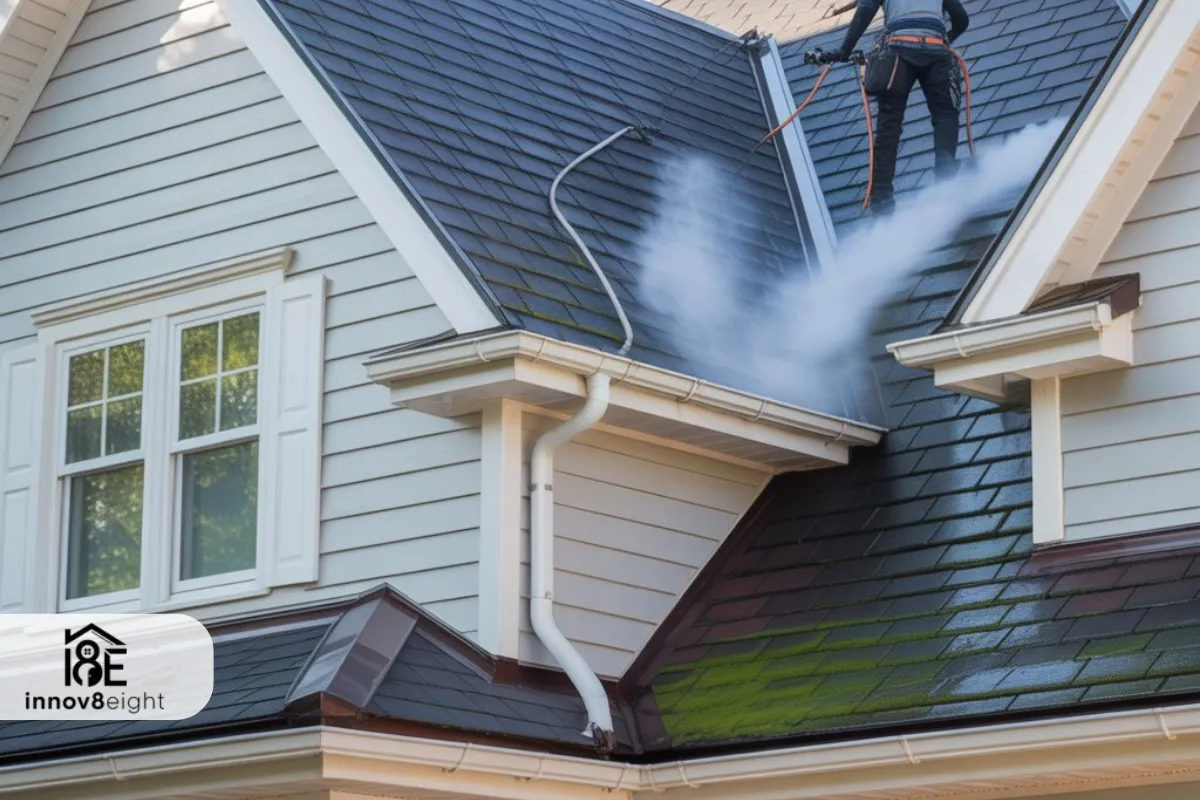Does Grass Seed Expire?
If you’ve ever pulled out an old bag of grass seed from the shed, you’ve probably asked yourself: “Hmm, does grass seed have an expiration date?” It’s a smart question—and the truth might surprise you.
Seeds Don’t Spoil, They Just Get Tired
Unlike milk or bread, grass seeds don’t suddenly “go bad.” Instead, they slowly lose their energy to grow. Think of them like a phone battery that doesn’t hold a charge as well over time. Whether it’s fescue grass seed, zoysia grass seed, or Bermuda grass seed, the clock starts ticking the moment those seeds are packaged.
Does Grass Seed Have an Expiration Date?
Here’s the straight answer: grass seed does have an expiration date, but you won’t find it printed on the bag like a carton of eggs. What really matters is something called viability that’s just a fancy word for how many seeds are still able to sprout.
Fresh seed usually has a germination rate of about 80–90%. After one year, that number may slip a little. By year two or three, if the seed wasn’t stored properly, germination can dip below 50%. That means half your effort and half your lawn could end up bare.
Why Storage Conditions Matter
Seeds are tiny living things, and they need the right environment to stay strong. If you keep your bag in a hot garage or a damp basement, even the toughest zoysia grass seed won’t last long. But store it in a cool, dry, dark place, and you might get lucky with a few extra years of life.
Grass Seeds Slangs and Nicknames
Some people jokingly call them “yard confetti” or “green sprinkles,” but whatever nickname you use, one rule applies: seeds don’t stay good forever. Old grass seed can leave you with patchy spots and frustration instead of a thick, healthy lawn.
The Takeaway
So, does grass seed have an expiration date? Yes but not in the way food does. Over time, seeds lose their strength, and fewer will grow. Fresh seed gives you the best chance at a lush lawn, while old seed may leave you disappointed.
How Long Does Grass Seed Last? (By Type & Storage Condition)
You’ve got the big question answered, grass seed doesn’t last forever. But the next question is just as important: “Exactly how long does it last?” Well, that depends on the type of seed you’ve got and how it’s been stored.
The Average Shelf Life of Grass Seed
Fresh seed usually starts off strong, with a germination rate around 80–90%. But once it’s packaged, the countdown begins. Here’s the general rule:
- Properly stored seed = good for 1–3 years
- Poorly stored seed = may struggle after just 6–12 months
So yes, storage makes a massive difference. Leave a bag in the trunk of your car all summer, and don’t be surprised if hardly anything grows.
Shelf Life by Grass Type
Not all seeds are built the same. Some are tough little survivors, while others lose steam faster. Here’s a quick breakdown:
| Grass Type | Average Shelf Life | Notes |
| Fescue grass seed | 2–3 years | Hardy, stays viable longer than most |
| Zoysia grass seed | 2 years | Can last longer with cool, dry storage |
| Bermuda grass seed | 2 years | Sensitive to moisture; keep sealed tight |
| Other cool-season grass seeds | 3 years | Bluegrass, ryegrass often hold viability well |
Opened vs. Unopened Bags
An unopened bag of grass seeds has the best chance of lasting longer, since it’s sealed and protected. But once you open it, air and humidity start sneaking in. That’s why leftover seed from last year should always be tested before you spread it.
Storage Is the Real Game-Changer
Even the toughest fescue grass seed won’t last long if it’s left in a damp shed. On the flip side, store it properly in a cool, dry, dark place and you might stretch that shelf life to three years or more. For extra protection, some homeowners even keep smaller amounts in airtight containers inside their basements.
Quick Reality Check
So, does grass seed have an expiration date? Yes—but it’s flexible. With smart storage, most seeds will stay good for 1–3 years. After that, germination rates dip low enough that planting becomes more of a gamble.
Why Grass Seed Loses Viability Over Time
Okay, so now we know that grass seed doesn’t last forever. But what actually causes it to lose its magic? Why does a bag of once-powerful seed suddenly struggle to grow? The answer comes down to a mix of science, storage, and sometimes just plain bad luck.
Seeds Are Living Things
It might surprise you, but grass seeds are technically alive. Inside each tiny seed is a little plant waiting for the right moment to sprout. Over time, that life force starts to fade. Whether it’s fescue grass seed, zoysia grass seed, or Bermuda grass seed, all seeds slowly use up their stored energy even while sitting quietly in the bag.
Heat, Moisture, and Light Are the Villains
Three things can really ruin seed fast:
- Heat – Leave a bag in a hot garage or the trunk of your car, and the seed “cooks.” Once overheated, it rarely recovers.
- Moisture – Humidity is a seed’s worst nightmare. A damp bag can trigger mold or even start sprouting seeds before they hit the soil.
- Light – Direct sunlight can weaken seeds by drying them out and breaking down their protective layers.
Even the toughest zoysia grass seed won’t stand a chance if it’s sitting in a damp corner for months.
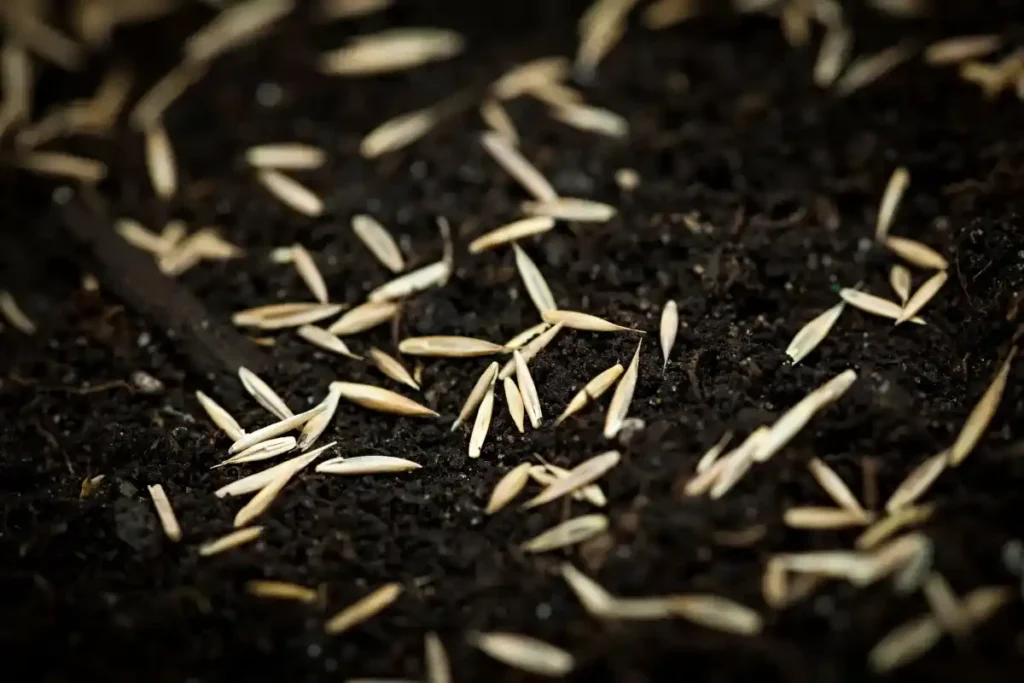
Packaging Plays a Role Too
Not all bags are created equal. Thick, sealed bags keep out more air and moisture, giving your seed a longer life. But once you open it, the clock speeds up. That’s why leftover grass seed should always go into an airtight container if you want it to survive until next season.
The Science of Decline
When people ask, “Does grass seed have an expiration date?” what they’re really asking is, “When will my seed stop sprouting?” The science answer is: germination rates drop because the seed’s stored food and enzymes break down over time. It’s like running out of fuel before reaching the finish line.
Bottom Line
Seeds aren’t immortal. They slowly lose their spark, especially when exposed to heat, humidity, or light. If you want your grass seeds. whether fescue, zoysia, or Bermuda grass seed, to stay strong, treat them like the delicate living things they are.
How to Tell if Grass Seed Is Still Good
So you’ve got an old bag of grass seed sitting in your shed and you’re wondering: “Should I plant this… or pitch it?” Don’t worry—you don’t need a lab coat or fancy equipment to find out. There are some simple tricks anyone can use to check whether a seed is still worth planting.
Look for Visual Clues
Start with your eyes. Healthy grass seeds should look dry and firm. If your seed looks clumpy, has a strange color, or shows signs of mold, it’s probably past its prime. A musty smell is another red flag, no one wants a lawn that smells like a damp basement.
Even the mighty fescue grass seed or Bermuda grass seed can lose the battle if moisture sneaks in. And if you see insects crawling around? Game over. Toss it out.
The Paper Towel Germination Test
Here’s the gold standard: the germination test. It’s quick, easy, and only takes a few days.
- Grab a damp paper towel.
- Sprinkle 10–20 grass seeds on it.
- Fold it over and slide it into a plastic bag.
- Leave it in a warm spot (like on top of the fridge).
- Check after 7–10 days.
Count how many seeds sprouted. If 8 out of 10 seeds grow, your germination rate is about 80%—still good! If only 3 sprouts, then you’ll know why your lawn ends up patchy.
The Float Test (Quick but Less Reliable)
Some folks swear by the “float test.” Drop a handful of grass seed into a cup of water. If seeds sink, they’re more likely to be alive; if they float, they might be duds. It’s not as accurate as the paper towel test, but it gives you a quick idea.
When in Doubt, Test It Out
The real question isn’t just “does grass seed have an expiration date?” It’s whether enough seeds are still alive to do the job. A simple germination test gives you the answer & helps you decide if you can still use your zoysia grass seed, fescue grass seed, or Bermuda grass seed without wasting time.
Bottom Line
Don’t gamble on your lawn. Test old seed before you spread it. A 10-minute check now could save you weeks of frustration later.
Using Old Grass Seed the Smart Way
So, you’ve tested your bag of grass seed and found that some of it is still alive. Now the big question: Should you actually use it? The short answer—maybe! It all comes down to how much life is left in those little seeds and what your lawn really needs.
Don’t Waste It If It Still Works
If your germination test showed at least 60–70% of the grass seeds are sprouting, you can still put them to good use. The trick is simple: just overseed with a heavier hand. That means spreading more seed than the bag recommends, to make up for the ones that won’t grow.
For example:
- Fresh seed might need 5 pounds for 1,000 square feet.
- If you’re using older fescue grass seed or zoysia grass seed with lower germination, you might need 7–8 pounds for the same area.
Great for Small Repairs
Old seed isn’t always ideal for starting a brand-new lawn. But it’s often perfect for patching up small bare spots or thinning areas. If the test results look decent, sprinkle it in those trouble zones—you’ll still see some green results without spending extra money.
When to Say Goodbye
Of course, not all seeds deserve a second chance. If your germination test showed fewer than 50% sprouts, planting it is more frustration than it’s worth. Even Bermuda grass seed, which is usually pretty reliable, won’t deliver much if half the seeds are already “retired.” At that point, it’s smarter (and faster) to invest in fresh seed.
A Trick Some Homeowners Use
If you’ve got a small amount of older seed left, mix it with fresh seed. That way, you’re not wasting it & the fresh seed helps boost your overall results. Just make sure you don’t rely solely on the old stuff.
Bottom Line
So, does grass seed have an expiration date? Yes, and once germination drops too low, the lawn of your dreams can quickly turn into patchy frustration. But if the seed is only a year or two old, you can still use it smartly—just overseed a little heavier and save the freshest seed for the big jobs.
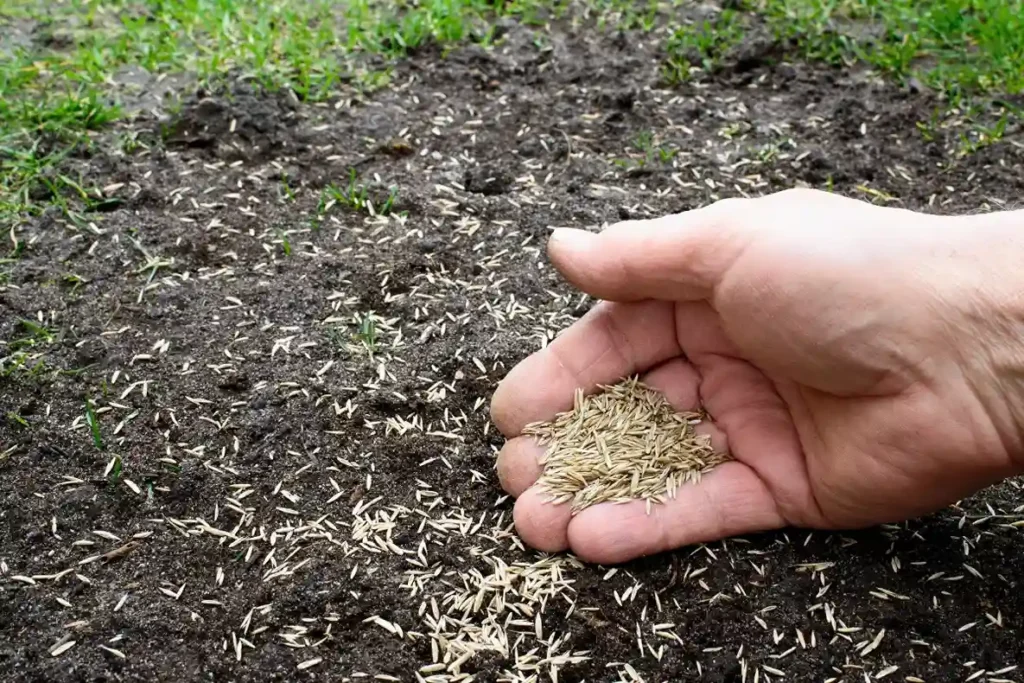
Best Storage Practices for Grass Seed
Here’s the good news: while grass seed can lose its spark over time, smart storage can stretch its life by years. Think of it like keeping food fresh—treat it right, and it’ll be ready when you need it. Whether it’s fescue grass seed, zoysia grass seed, or Bermuda grass seed, the same golden rules apply.
Rule #1: Keep It Cool
Temperature is everything. Seeds don’t like heat—period. Store your bag in a cool spot (ideally 40–50°F) to keep them from drying out too fast. A basement or interior closet works better than a garage, which can get too hot in summer and too cold in winter.
Rule #2: Stay Dry
Moisture is the enemy. Even a little dampness can ruin an entire bag of grass seeds. Mold, clumping, or early sprouting often start when humidity sneaks in. Use a sealed plastic bin or airtight container to keep your seed safe from the elements—and from pests who might see it as a snack.
Rule #3: Protect from Light
Seeds are meant to rest until planting time, but direct sunlight can confuse them. Bright light can warm them up and break down protective layers. That’s why a dark storage spot is best. Think of your seed as a vampire—it thrives in the dark!
Rule #4: Don’t Store Outdoors
Leaving seed in a shed, garage, or car might seem convenient, but it’s a recipe for disappointment. Temperature swings and humidity will cut the life of your seed in half. Even though Bermuda grass seed won’t survive long in those conditions.
Pro Storage Tip
If you’ve got small leftover amounts, pour them into airtight jars or resealable bags with a few packets of silica gel (the little moisture-absorbing packets you find in shoe boxes). This helps keep your seed bone-dry until you’re ready to spread it.
Bottom Line
When people ask, “Does grass seed have an expiration date?” the answer often depends on how it’s stored. Follow the three golden rules—cool, dry, and dark—and you’ll give your fescue grass seed, zoysia grass seed, or Bermuda grass seed the best shot at lasting 2–3 years or more.
Final Takeaway: Does Grass Seed Really Expire?
By now, you know the answer to the big question: “Does grass seed have an expiration date?” Yes—it does. But unlike food, it doesn’t suddenly spoil. Instead, grass seeds slowly lose their ability to sprout over time.
Fresh Is Always Best
Whether it’s fescue grass seed, zoysia grass seed, or Bermuda grass seed, new seed gives you the highest germination rates and the lush, green lawn you’re dreaming of. Planting with old seeds is like trying to run a marathon on half a tank of gas—you’ll get some results, but not the full finish line.
Old Seed Isn’t Always Useless
That doesn’t mean old seed has no value. If your germination test shows decent results, you can still use older seed for patching small spots or overseeding. Just remember to spread a little extra to make up for the weaker sprouting power.
Storage Makes All the Difference
The way you store your grass seed matters more than the date on the bag. Keep it cool, dry, and dark, and you could stretch its life to 2–3 years. Ignore these rules, and even the toughest seed won’t make it through a single season.
Grass Seeds Slangs and Lawn Humor
Some call them “yard sprinkles” or “green confetti,” but whatever you call them, grass seeds are the foundation of every healthy lawn. Treat them well, and they’ll reward you with years of green, soft grass under your feet.
The Bottom Line
So, does grass seed have an expiration date? Absolutely. But with smart storage & a little testing, you can decide whether to plant it or replace it. If you want the thickest, healthiest lawn possible, fresh seed is always worth the investment.
Your lawn is like a blank canvas, and your seed is the paint. Choose wisely, care for it, and before long, you’ll be enjoying a vibrant green yard that makes your whole neighborhood jealous.
FAQs About Grass Seed Expiration
Got questions about grass seeds sitting around in your shed? You’re not alone! Here are the most common ones people ask when they wonder, “Does grass seed have an expiration date?”
1. Does Grass Seed Go Bad Like Food?
Not exactly. Grass seed doesn’t spoil like milk or bread. Instead, it slowly loses its ability to sprout. Over time, fewer seeds will grow, which means a patchy lawn if you’re not careful.
2. How Long Does Grass Seed Last in the Bag?
On average, fescue grass seed and other cool-season types can stay viable for 2–3 years if stored properly. Zoysia grass seed and Bermuda grass seed usually last around 2 years. After that, germination rates drop sharply.
3. Is It Okay to Use Expired Grass Seed?
Yes—sometimes. If your seed is only a year or two past its prime and still passes a germination test, you can use it. Just spread a little more than usual to make up for the weaker sprouting power.
4. Can Old Grass Seeds Still Grow a Lawn?
They can, but it’s risky. Fresh seed gives you the thickest, healthiest lawn. Old seed might only fill in spots here and there. If you’re starting a brand-new yard, don’t gamble—buy fresh seed.
5. What’s the Best Way to Store Grass Seed Long-Term?
Cool, dry, and dark. Keep your seed in an airtight container in a basement or closet—not in the garage or shed. This storage method can keep grass seeds healthy for up to 3 years.
6. What Happens If I Plant Really Old Seed?
If the seed is too old, nothing much will happen. You’ll end up with thin, bare patches and wasted effort. Even tough types like Bermuda grass seed eventually lose their power to grow.
7. Are There Any Grass Seeds, Slangs or Nicknames?
Some folks jokingly call them “yard sprinkles” or “green confetti.” Fun names, sure—but remember, even the funniest grass seeds slangs won’t make old seeds magically sprout!
Bottom Line
Old seed can sometimes work, but fresh seed always wins. The answer to “Does grass seed have an expiration date?” is yes—and storing it right is the key to keeping it alive as long as possible.

